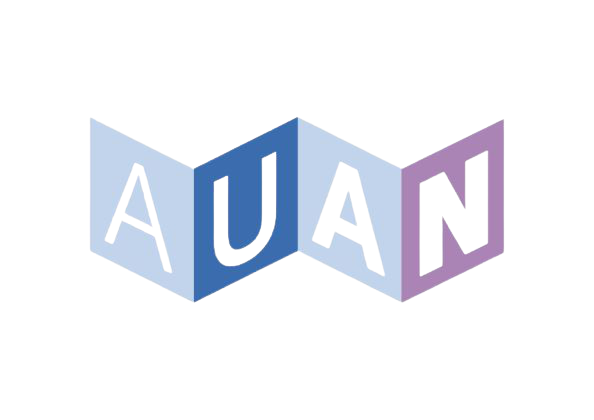
The Recovery and Resilience Facility (RRF) is the key instrument of the NextGenerationEU, the programme the EU adopted in July 2020 (and which entered into force in February 2021) to help member states emerge stronger and more resilient from the pandemic. It provides €672.5 billion (in 2018 prices) of financing to support public investments and reforms (including up to €312.5 billion in grants), primarily (37% and 20% respectively) in the areas of climate and the digital transition. Now that all the “National Recovery and Resilience Plans” (NRRPs) have been approved and implementation is well underway, we asked Maria Demertzis, Senior Fellow at Bruegel and Professor of Economic policy at the European University Institute (EUI) in Florence, to take stock of this landmark initiative.
Q1. How do you broadly assess the « transformative factor » of the RRF in the economies of the member states? Do you think it helped them develop a sense of ownership of EU economic governance?
There are two noteworthy elements. The first one has to do with the financing of the instrument, with member states accepting to mutualise risk and borrow together in a way that was not thought possible previously. This was very transformative. The Commission had never mutualised debt before, certainly not to give out grants (actually, it had borrowed before but to give out loans, not grants). The second element leads us to distinguish the grant and loan components of the Facility. One of the reasons the RRF became possible was because its governance was going to be intrusive and rigorous, involving the Commission, but also other countries, to scrutinize how the money is spent, i.e. the “stick” maintaining the “carrot”. Now, what has happened, however, is that while all countries have claimed their grant components, only very few countries have asked for the loans they are entitled to (so, a sum in excess of EUR 220 bn in 2018 prices remains unallocated). There are a couple reasons for that: countries do not know how to spend the money (i.e. an “absorption problem”); also, the monitoring and interference that are implied with the RRF appear to be a burden when taking loans. As a result, many countries would rather pay a little premium and borrow “anonymously” on financial markets.
As far as the allocation of money is concerned, I think everyone in the EU is “sold” to the twin transitions and it is positive that countries engage with them as they have. In fact, they have exceeded their dual (37% of climate investments and reforms, 20% for the digital transition) targets: for the RRF as a whole, estimated climate expenditure amounts to about 40% and digital expenditure to 26%. The large added value here is that many countries, such as Greece or Italy, did not have the fiscal space to do so, so the RRF is really a “double plus”. On the appropriation of economic governance issues, I think national ownership exists and has improved in the context of the RRF, and that scrutiny of countries’ plans is acceptable, but that is closely associated with the use of grants, not loans. In the future, it is unclear whether this kind of governance for loans would be acceptable. This may change in a context of high inflation and higher interest rates, but we are not there yet.
Q2. Are you concerned Italy would not continue to deliver on its reform and investment agenda under the leadership of Giorgia Meloni?
I would say that governments that get elected on “protest votes” usually become sensible when they get to power : they turn out to be more “mainstream”, more “plain vanilla”. Now, Italy has a huge incentive to comply given the vast amount it receives from the RRF (EUR 191.4 bn have been allocated to Italy under its resilience and recovery plan, i.e. 10.7% of GDP) and so far we have not seen any evidence that they will not be compliant. So, I am not worried, even though on some other files, as we have seen with migration lately, some “hick ups” are possible.
Q3. How do you see the potential kindling of the RRF and REPowerEU pan out in the context of a potential revision of the RRF regulation?
The good news about having a large chunk of the loan component of the RRF unused is that allows to use this money for other EU programmes. There is particular need for structural investments in energy, to allow the EU to “decouple” from Russia as the REPowerEU programme wants to do. So, the kindling of the two is going to amplify the green investments of the RRF, but only to some extent as there are many short-term investment projects that are not so green, such as GNL terminals. I do not have problems with that provided that we accelerate the energy transition on the whole.
Q4. According to you, what should be the conditions for member states to consensually agree on making the RRF permanent when the time comes?
This discussion is not going to be an easy one, obviously. To the extent it would be possible, I think the crucial thing will be the governance, the fact that the money will have been used properly and has met its objectives (the so-called “milestones” and “targets” in the RRF regulation). If we find that money has been lost, without good governance, the discussion will be killed. There is going to be a lot of scrutiny on this, and this is where the monitoring of the RRF is actually a positive element. Provided we have good governance, the other discussion will be about the use of the money five years from now. Of course, anything that has to do with the climate would be eligible, and since many countries will not have the proper fiscal space to invest in this “public good”, there will be a case for that but not necessarily an agreement. As far as industrial policy is concerned, I think it will be very difficult to make a case. Europe is very diverse and financing some specific sectors with EU money (e.g. the semi-conductors) would imply that specific geographic pockets would benefit from it and not others. And then, this is where the use of relaxed state aid rules creates a mess as some countries have more fiscal space to do so than others… Also, industrial policy fundamentally goes against our rules. We may need to change them, but we are not there yet.






